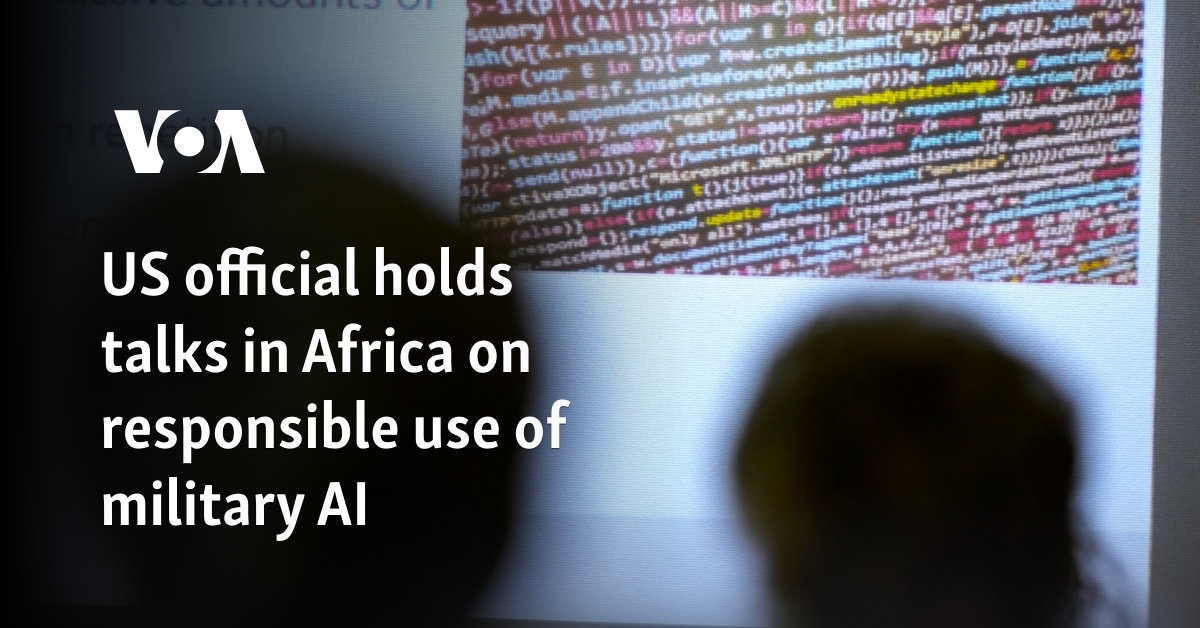A U.S. State Department official was in Nigeria this week to speak with local and regional authorities about the responsible use of artificial intelligence in military applications.
Mallory Stewart, assistant secretary of state for the Office of Arms Control, Deterrence and Stability, said her two-day visit with Nigerian representatives of the ECOWAS regional bloc was part of the United States commitment to deepen security cooperation in Africa.
The U.S. government is working with 55 nations, including African ones, to “agree on the responsible use of AI in a military context, using AI in a manner consistent with international law (and) recognizing inherent human bias,” Stewart told reporters on Wednesday.
“We learned the hard way that there is an inherent human bias in the AI system … which can lead to incorrect information being provided to the decision maker,” she said.
The goal, she continued, is to “hear from as many countries as possible that are in the process of incorporating artificial intelligence into their military to see how we can minimize the risks.”
Last year, sub-Saharan Africa was named the epicenter of terrorism in the Global Terrorism Index. Almost 60 percent of all terrorist deaths can be traced back to this country. It is unclear whether the terrorist groups are using AI in this process.
Nigerian authorities are pushing for the inclusion of artificial intelligence in military operations, but acknowledge that Africa-specific strategies are needed to implement artificial intelligence.
Security analyst Kabiru Adamu of Beacon Consulting said there are benefits to using AI in military operations.
“Given the US military capacity and technological advancement, they will definitely be able to support Nigeria’s desires, especially if they are able to contextualize some of the specificities of the Nigerian security space,” Adamu said. “We cannot isolate ourselves from the international committee of nations. AI is embedded in security, so we have to do it. But we have to be conscious of the supporting infrastructure for good technology. Power is one of them, culture.”
The founder of the online magazine Global Sentinel, Senator Iroegbu, said that while AI has advantages, the technology still needs to be treated with caution.
“This limits casualties by the number of soldiers deployed, so you save your boots,” Iroegbu said. “It helps penetrate rough terrain and collect more intelligence. It is good that awareness is growing on the issue of artificial intelligence, but Nigeria must first try to define its own policy and strategy on artificial intelligence. There needs to be more awareness and more policy development in this area.”
In June, African ministers unanimously endorsed a landmark continental AI strategy to advance Africa’s digital future and development ambitions. And last week, the African Union approved the rollout of AI in the public and private sectors in member states, including Nigeria.


